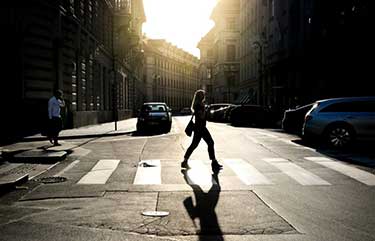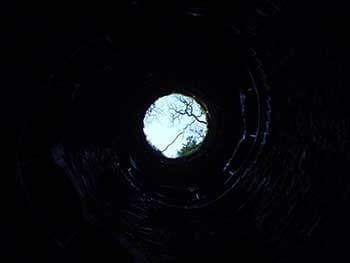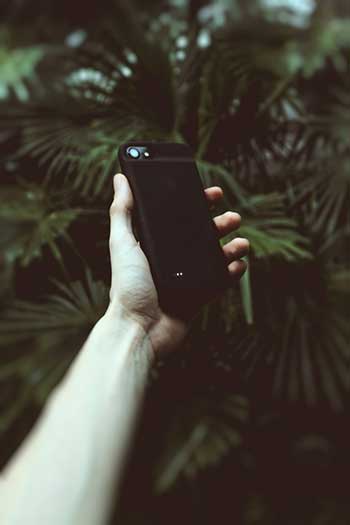Slip and Fall Accident in Georgia » Do You Have a Valid Case?

What Caused You to Fall?
If you don’t know what caused you to fall, there is likely no case.
Under Georgia law, a judge will usually grant summary judgment and rule in favor of the defendant if there’s no evidence of what caused you to fall.
However, if there’s other evidence of what caused you to fall, such as a witness or a security video, you may have a case.
For a free consultation with our Georgia slip and fall lawyers, please call (706) 354-4000 or send us an online message today.
Learn more about a summary judgement here.
Was Your Fall Caused by a “Static Defect” or a “Foreign Object”?
Georgia law generally separates slip/trip and fall cases into two categories: static defect cases and foreign object cases.
A static defect is any type of permanent or structural defect such as stairs, ramps, doorways, curb cuts, potholes, uneven or broken floors, sidewalks, walking paths, carpets, drain grates, or manholes. Without a defect, you don’t have a case.
You must be able to prove that whatever caused you to fall is unsafe. Some defects are obvious such as a pothole or broken sidewalk, but others may require you to prove a safety code violation, like stairs that don’t meet building code.
A foreign object can be spilled liquids, food dropped on the floor, a bunched-up or misplaced rug or floor mat, grease, or other items.
If it was raining and you slipped and fell in a grocery store or other business, a motion for summary judgment may be granted.
Rainy day slip and falls typically, not always, mean there’s no case.
Did You Know the Foreign Object or Static Defect Was There?
Under Georgia law, if you know about the foreign object or static defect and still fall and injure yourself, you generally do not have a case.
Georgia law calls this “equal knowledge,” meaning your knowledge of the hazard is equal to the business or property owners.
One exception to this rule is if you were going in or out of your home or apartment.
Have You Walked Through That Area Before?
If you have walked through the area before, the prior traverse rule may apply. The prior traverse rule means you have equal knowledge of the hazard and you likely don’t have a case.
An example of the prior traverse rule is if you carefully walk through a puddle in a store and later forget it’s there and slips and fall in it.
In that situation, the judge would find the prior traverse rule applied.
However, there are two exceptions to this rule:
- You had no knowledge of the specific hazard that caused you to fall
- The hazard was not readily observable to a reasonably careful person
Why didn’t you see the object or hazard? Was something covering it up or concealing it? Had you been looking for it, would you have been able to see it?
If the foreign object or static defect was easily noticeable to a reasonably careful person, the plain view doctrine may apply, which means you don’t have a case.
The exception is if you didn’t see the foreign substance or static defect because of an emergency, circumstances causing stress or excitement, or something the defendant might reasonably anticipate would cause the distraction.
If so, the “distraction doctrine” may apply. For instance, if you were looking at a display in a grocery store and didn’t see a spill, the distraction doctrine may apply.
Or if you’re walking to your car in the parking lot and looking out for traffic and didn’t see a pothole, the distraction doctrine may apply.

Was an Incident Report Filled Out?
In evaluating whether you have a case, an attorney will also want to know if an incident report was filled out, ask for a copy of the report for your records.
If no report is instigated by the business or property owner, you can make an official report for them to keep on file.
Make sure to include all the vital information.
Having an incident report on file can help prove your case and assist you in recovering fair compensation.
It’s also helpful to write out a narrative as soon as possible after you’re injured. Writing down details will help you to keep track of the facts, including small details you might forget later on.
Did Anyone Witness Your Fall?
Did anyone witness you fall and injure yourself? A witness can help validate your story and describe what they observed during the incident.
It’s important to get the names and contact information of any witnesses. You can request they also give a statement for the incident report.
Are There Photos or Video of the Fall or Your Injuries?
Is it possible there’s a photo or video evidence of the fall?
Could a witness have been recording video or taking photos with you in the background? Are there video cameras at the business or location that possibly recorded your fall?
 Did you take video or photos of the static defect, foreign object or of your injury immediately after the fall?
Did you take video or photos of the static defect, foreign object or of your injury immediately after the fall?
All of this can be used as evidence in your case, so it’s important to keep track of any photos or videos and save them in multiple places such as on your phone, on a computer hard drive, or on a photo or video storage site such as Google Photos.
Were There Any Employees Present When You Fell?
Were there any staff or employees present when you fell? Could any nearby employees have potentially seen the hazard and fixed it?
Did any employees come to your aid?
What, if anything, did employees say to you after your slip and fall accident?
Georgia’s Statute of Limitations
Georgia’s statute of limitations requires that a lawsuit for an injury-causing accident be filed within two years after the incident occurred.
There are certain limited exceptions, but it’s best to avoid delays.
Additional reasons to take quick action after you’ve been injured in a Georgia slip and fall include:
- Physical evidence may deteriorate over time
- A property owner may try to rectify the problem before there’s any photo or video evidence
- Witnesses may have a difficult time recalling what happened if too much time has passed
Learn more about slip and fall statute of limitations here.
A History of Results
We have an established track record of bringing our clients results they expect and deserve. We have recovered millions of dollars for our clients.
Contact a Georgia Slip and Fall Lawyer
Property owners have a legal duty to keep visitors safe.
If you think you have a case, contact one of our Georgia slip and fall attorneys today at (706) 354-4000 or fill out our case review form to set up your free consultation.
There’s no fee unless we win your case. Blasingame, Burch, Garrard & Ashley, P.C. has offices in Athens and Lake Oconee, and we handle cases across the state of Georgia.
